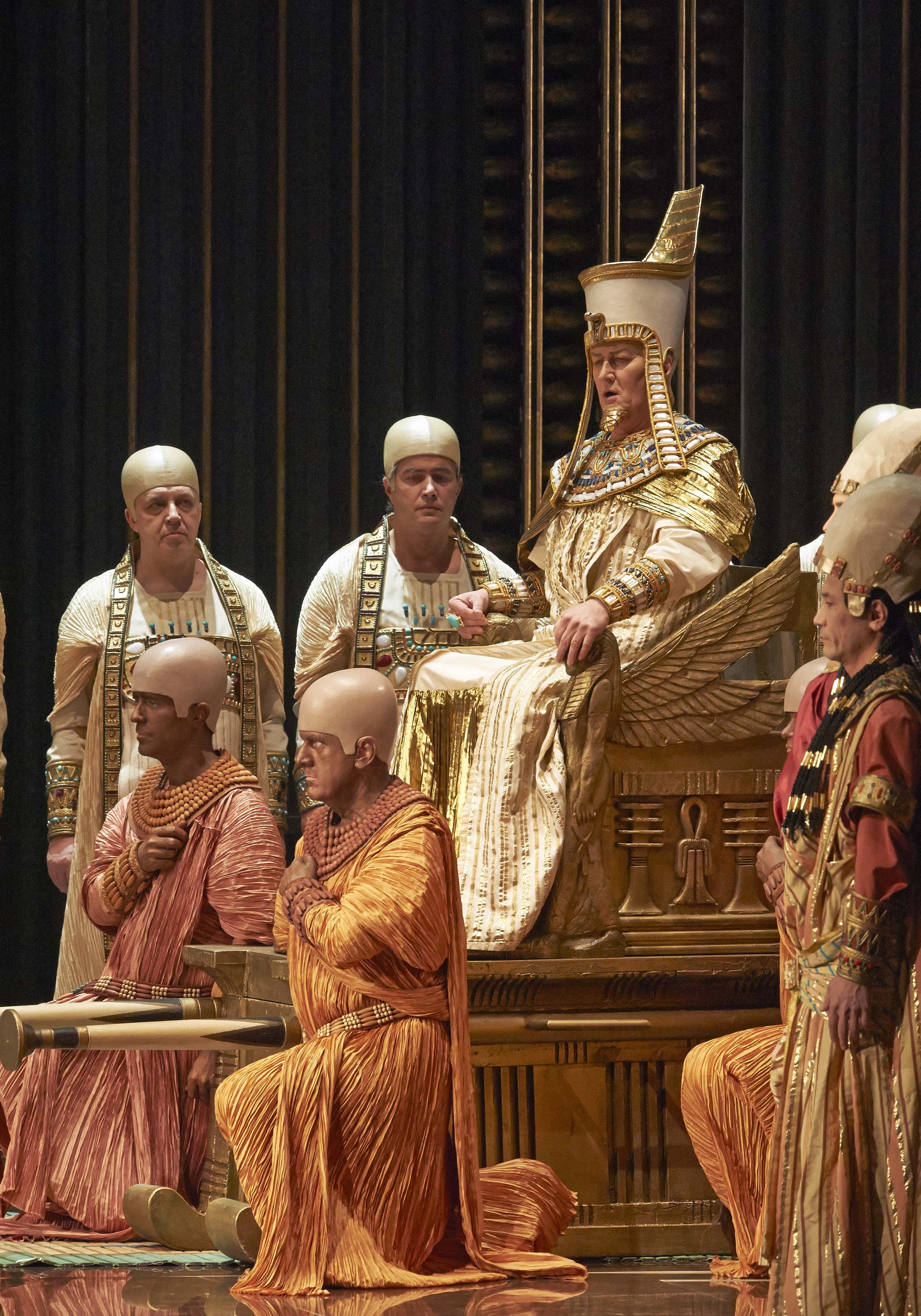
and launches a ferocious campaign against the Ethiopians.

In response, the King of Egypt declares Radamès as the leader of his army. When she learns of Aida and Radamès's relationship, Amneris threatens her, and promises that she will be victorious in this fight.Īida’s father, King Amonasro, discovers that his daughter has been captured and declares war on Egypt. The Princess of Egypt, Amneris, is also in love with Radamès. She and Radamès have secretly fallen in love. She sang with two clearly separated voice colours: The extraordinarily lush middle range and the deep range, reminiscent of an alto, had that smoky character, the fluent high range sounded bright and clear, and remained unstrained to the highest regions.» (Fischer, Grosse Stimmen).A tragic tale of forbidden love, Aida follows the struggle of the Ethiopian princess, Aida, and the young Egyptian warrior, Radamès, as they try to decide between their love for each other or loyalty to their countries.Īida has been captured by the Egyptians, who do not know her true identity, and is being held as a slave. The often described guttural sound of afro american singers could not be found in her voice, but she possessed what the English language calls «smoky». The thing she was great at was her phenomenal voice material and its artistic use. Fischer describes her voice as follows: «As an actress on stage, Leontyne Price remained clichéd in gestures from old opera days. The aria ends with a beautiful high pianissimo C. At the end, “non ti vedro” again takes up the mood of the beginning, this time with wonderful high notes and accompanied by the oboe. In “che un di promesso” the voice becomes more intense and the next o patria is accompanied by an intense orchestra sound. Desperation manifests itself in the repeated repetition of the “mai piu”. A nostalgic oboe cantilena introduces the theme of the homeland. She slowly awakens from this mood until “l’ultimo addio”.

The beginning is in a gloomy mood, for Aida fears she will never see her fatherland again. O Patria mia is a melancholy aria sung in the mood of a full moon night on the Nile. Se quel guerriero io fossi…Celeste Aida (1) – Björling Let’s listen to the Swede, described by many as the best Verdi tenor of the 20th century. Listen to Jussi Björling an excellent interpreter of this role. The love passages must be sung with much legato and sometimes in beautiful pianissimo. The aria alternates several times between the poles of battle (“un esercito di prodi, da me guidato”) and love (“Celeste Aida”). The aria, another difficulty, starts unaccompanied by the orchestra. He must also be confident in the high notes. The tenor voice must be able to withstand sharp trumpet sounds and keep up with the warmth of the woodwinds.

Some tenors regard Celeste Aida as Verdi’s most difficult tenor aria. Right at the beginning, poor Radames must sing the great aria “Celeste Aida”, without warm up. Radames must be able to sing both the great heroic arias and the lyrical piano passages. Verdi offers considerable difficulties to the role of Radames. Radames dreams of returning to his secret love Aida wreathed in laurel from the fight against the Ethipians. The Ethiopian warriors attack Egypt to free Aida. Unis dès la plus tendre enfance (Iphigenia)Īida, the daughter of the Ethiopian king Amonasro is a slave at the Egyptian court.Madamina, il catalogo, Catalogue Aria (Don Giovanni).Je dis que rien ne m’epouvante (Carmen).Glück, das mir verblieb (Die tote Stadt).Dies Bildnis ist wunderschön (Zauberflöte).Dein ist mein ganzes Herz (Land des Lächelns).


 0 kommentar(er)
0 kommentar(er)
